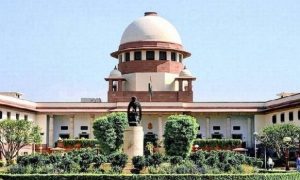The newly constituted six-member MPC left the repo rate – the key policy rate unchanged at 6.5 per cent for 20 consecutive months due to worries over higher inflation in the October policy.
Read More:- Federal Bank Announces Scholarships: Full Tuition Coverage For MBBS, Engineering, MBA & More
At the current juncture of the economic cycle, the Reserve Bank of India (RBI) cannot risk ‘another bout of inflation’ and so there is a need to wait for more evidence of inflation aligning durably with the 4 per cent target, Governor Shaktikanta Das wrote in the minutes of the Monetary Policy Committee (MPC) held from October 7- 9.
The newly constituted six-member MPC left the repo rate – the key policy rate unchanged at 6.5 per cent for 20 consecutive months due to worries over higher inflation in the October policy. The decision to keep the policy rate steady was taken in a 5:1 majority, with MPC member Nagesh Kumar voting for a 25 basis points (bps) cut. The MPC changed the monetary policy stance to ‘neutral’, after keeping it as ‘withdrawal of accommodation’ for 28 straight months.
“At this stage of the economic cycle, having come so far, we cannot risk another bout of inflation. The best approach now would be to remain flexible and wait for more evidence of inflation aligning durably with the target,” Das, who voted for keeping the repo rate steady and changing policy stance to ‘neutral’ wrote in the minutes, released on Wednesday.
Consumer price-based inflation (CPI), or retail inflation, surged to a nine-month high of 5.49 per cent in September from 3.65 per cent in August. It is expected to remain elevated in October.
Beyond the short-term, however, the outlook for food inflation is becoming more favourable with improvement in kharif and rabi season prospects.
“Despite the near-term uptick in inflation, the outlook for headline inflation towards the later part of the year and early next year points to further alignment with the 4 per cent target,” he said, adding that the conditions were appropriate for a change in monetary policy stance to neutral from withdrawal of accommodation.
The newly appointed external MPC member, Nagesh Kumar, wrote that it was an opportune time for the RBI to start the process of normalising the monetary policy.
“Given that inflationary expectations have been successfully anchored, and industrial demand in both domestic as well as export markets is flagging, a rate cut could help to revive demand and help boost private investment,” Kumar wrote.
Read More:-Onion Prices Spike Ahead Of Diwali Due To Heavy Rains And Supply Challenges
He said that the Indian industry was clearly suffering from demand deficits in both domestic and external markets. Demand deficits may be the reason private investment has not picked up momentum despite the companies’ healthy balance sheets and all the reforms and incentives extended by the government.
RBI Deputy Governor Michael Patra said, “A gradual wait-and-assess approach to removing policy restraint in terms of the policy rate remains appropriate as long as inflation is not lastingly close to its target.”
Read More: Delhi’s Air Quality Remains ‘Very Poor’ Amid Rising Pollution, Jahangirpuri Worst Affected
Patra, who voted for a status-quo on the policy rate and shift in stance to neutral, wrote, “…it is possible to envisage that the persistence of inflationary pressures experienced so far could dissipate with a less restrictive stance of monetary policy”.
The MPC’s newly inducted external member, Saugata Bhattacharya, said,” The arduous battle against inflation is far from won, but we are more confident of eventual success in bringing CPI inflation durably closer to the target”. Bhattacharya voted for a change in stance to neutral while keeping the repo rate unchanged at 6.5 per cent.
Read More: India launches new spam-tracking system to block spoofed International calls
“It needs to be emphasized, given the current heightened uncertainty, both global and domestic, that a very cautious and calibrated approach to easing is called for; the costs of a “policy error” are likely to be large,” he wrote.
Another external MPC member, Ram Singh, wrote that food inflation was an important source of uncertainty, which has increased in August from the preceding month.
Read More: Central govt pensioners alert! New pension application process introduced for retiring employees
“Going forward, the moderation in headline inflation can be unsteady in the near term due to adverse base effects,” he said.
MPC member Rajiv Ranjan said that considering the uncertainties still prevailing on the global front, a cautious data dependent approach with regard to further course of monetary policy actions was called for.
“Between now and December, we will have greater clarity on some of the uncertainties – US elections, geopolitical risks and Chinese fiscal stimulus and its impact on global commodity prices,” he said. He voted for a status quo on rates and change of stance to neutral.





































